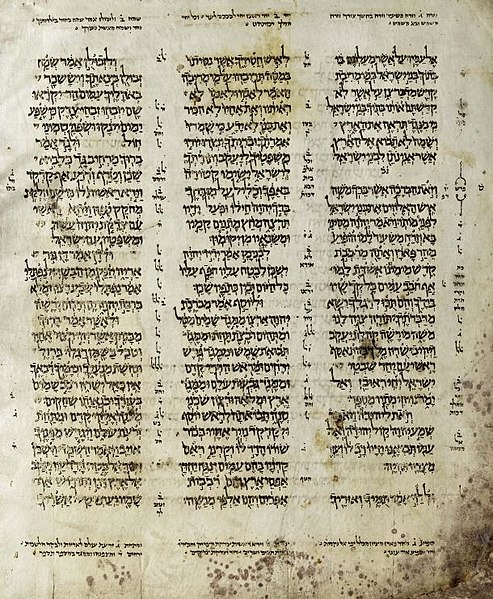10 September. King Asa of Judah burns the idols and Asherah poles
“Abijah [the son of Rehoboam] became king of Judah during the eighteenth year Jeroboam son of Nabat was king of Israel. Abijah ruled in Jerusalem for three years. His mother was Maacah daughter of Abishalom.”
“He did all the same sins his father before him had done. Abijah was not faithful to the LORD his God as David, his great-grandfather, had been… David always did what the LORD said was right and obeyed his commands all his life, except the one time when David sinned against Uriah the Hittite.”
“There was war between Abijah and Jeroboam during Abijah’s lifetime. Everything else Abijah did is written in the book of the history of the kings of Judah… Abijah died and was buried in Jerusalem, and his son Asa became king in his place.”
“During the twentieth year Jeroboam was king of Israel, Asa became king of Judah. His grandmother’s name was Maacah, the daughter of Abishalom. Asa ruled in Jerusalem for 41 years.”
“Asa did what the LORD said was right, as his ancestor David had done. He forced the male prostitutes at the worship places to leave the country. He also took away the idols that his ancestors had made.”
“His grandmother Maacah had made a terrible Asherah idol, so Asa removed her from being queen mother. He cut down that idol and burned it in the Kidron Valley. The places of worship to gods were not removed. Even so, Asa was faithful to the LORD all his life.”
“Asa brought into the Temple of the LORD the gifts he and his father had given: gold, silver and utensils. There was war between Asa and Baasha king of Israel all the time they were kings.”
(1 Kings 15:1-16)

Today’s reading is about two kings of Judah who were as different as chalk and cheese. King Abijah was the offspring of Solomon’s son Rehoboam and his foreign wife Maacah. Like Solomon’s 700 foreign wives (see 1 Kings 11:3-4), women such as Maacah brought their own gods with them, and raised their children to worship idols and images of foreign gods.
As a result, Abijah “did all the same sins his father before him had done.” (1 Kings 15:3) Following in the steps of his father Rehoboam, he worshipped the golden calves in the temples at Bethel and Dan (see 1 Kings 12:28-30), and worshipped the images of the fertility goddess Asherah erected by his mother Maacah (see 1 Kings 15:13).
Abijah’s son, Asa, however, was quite different from his father. He respected the LORD and tried to turn people away from the worship of foreign gods in Judah. He forced the male prostitutes to leave the country, and removed the idols that his ancestors had made (1 Kings 15:12). Then he burned the Asherah pole that had been erected by his grandmother Maacah, and removed her from her position as queen mother. In addition, he refurbished the Temple with various gold and silver utensils (see 1 Kings 15:15).
Very little about Asa’s 41 year reign as King of Judah is recorded in the Bible in the First Book of Kings. Interestingly, however, we’re told that there were other contemporary historical accounts of the kings of Judah that were available as source material for the authors of the First and Second Book of Kings. We’re informed that, “Everything else Asa did – his victories and the cities he built – is written in the book of the history of the kings of Judah.” (see 1 Kings 15:23)
Other historical sources quoted in the First Book of Kings include ‘The Book of the History of Solomon’ (see 1 Kings 11:41) and ‘The Book of the History of the Kings of Israel’ (see 1 Kings 14:19). You can read more about other contemporary sources used in the Old Testament @ https://www.thebiblejourney.org/biblejourney2/48-the-jewish-world-of-the-old-testament/sources-of-the-history-of-israel-and-judah/
The photo shows a page of the Aleppo Codex, a medieval manuscript of the Hebrew Bible (the Tanakh).
